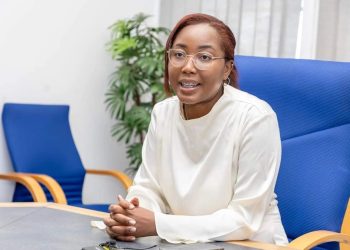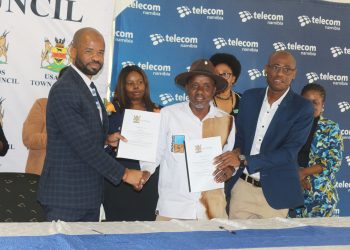
Namibia has announced plans to increase its national broadband speed to 25 megabits per second (Mbps) by 2026, as part of its broader commitment to accelerating digital infrastructure development across Africa.
Delivering a keynote address at the African Data Summit in Nairobi, Executive Director of Namibia’s Ministry of Information and Communication Technology, Audrin Mathe said that Namibia’s internet upgrade is part of its National Digital Strategy Plan 2025 and complements the country’s e-Government Strategic Roadmap, which aims to improve service delivery through digital platforms.
The government also plans to expand its data centre market by 4.8% annually through 2030.
“Average broadband speeds improved from 2.68 megabytes per second in 2019 to 8.31 megabytes per second in 2022. I am pleased to inform you that Namibia will increase the speed to 25mbs in 2026,†he said.
He further explained that Namibia is also the first African country to implement the UNDP’s Model Governance Framework for Digital Legal Identity, providing citizens with secure, verifiable digital identities to enhance access to services.
“Our vision reflects our understanding that digital infrastructure is about human dignity, economic opportunity and social inclusion. Through our e-Government Strategic Roadmap, we are transforming how government serves our people,†he said.
However,he also emphasized the urgency of closing the continent’s digital divide. He highlighted that although Africa is home to 1.4 billion people, it holds less than 1% of the world’s data centre capacity, a gap that threatens to exclude millions from the global digital economy.
Mathe also said that while internet access has grown across Sub-Saharan Africa, increasing from 19% to 36% of the population between 2016 and 2021,only 22% are actively using mobile internet, mainly due to affordability barriers. In Namibia and across the continent, efforts are being made to reduce data costs and expand access to 4G and 5G networks.
“This gap represents hundreds of millions of Africans remaining on the wrong side of the digital divide,†he said.
He stressed that Africa’s digital transformation must rest on three key pillars: connectivity, capacity, and capability and called for increased regional cooperation, stronger public-private partnerships, and investments in education and digital skills.
“We must commit to specific, measurable targets: universal 4G coverage by 2027, 80% broadband access by 2030, and regulatory environments that support sustainable development,†he said.
Namibia’s internet speed ranks 143rd out of 152 countries, with a median download rate of 13.72 Mbps, according to Ookla’s Speedtest Global Index.











